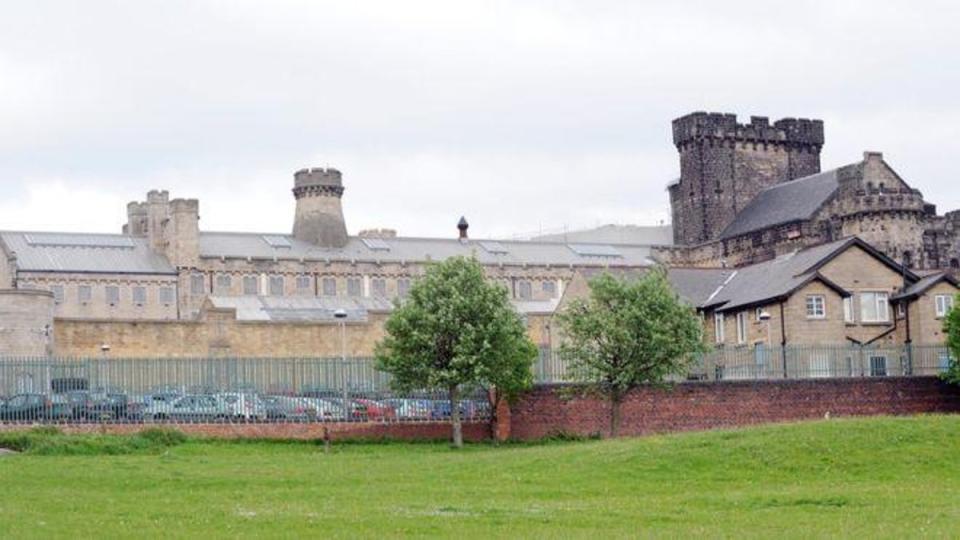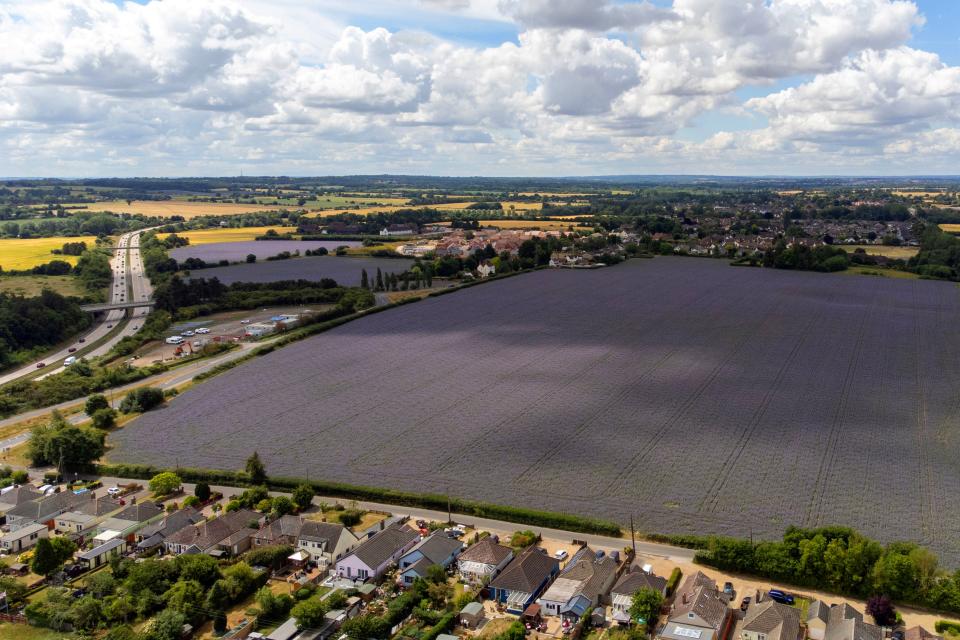Left-wing terror suspect killed himself in prison while awaiting mental health treatment, inquest finds

A man facing trial for alleged left-wing terror offences killed himself in his prison cell after a month waiting for a psychiatric appointment, an inquest has found.
Dominic Noble, 32, died on 15 August 2020 while being held on remand at HMP Leeds, in one of five suicides in the jail that year.
A coroner said that Mr Noble was the second inmate to die by suicide while waiting to see a psychiatrist at the jail within a year, and there was a risk of future deaths unless mental health provision is reviewed.
Mr Noble was due to go on trial in November 2020, accused of 14 counts of possessing or accessing documents useful to a terrorist.
Counter Terrorism Policing North East said he was arrested at his home in Huddersfield on 2 June 2020 “as part of an intelligence-led investigation in to suspected left-wing terrorism”.
A hearing at Leeds Magistrates’ Court heard that Mr Noble had made comments to police claiming he had the knowledge to make explosives, demonstrated a “left-wing anarchist ideology” and had researched bomb-making and attacks.
On Facebook, Mr Noble had written about a “list of potential targets” including Sir Keir Starmer, who was running to become Labour leader at the time.
Also on the list was the then chief magistrate of England and Wales, judge Emma Arbuthnot, because of her role presiding over the Julian Assange case.
Mr Noble frequently expressed support for the WikiLeaks founder and railed against people and institutions he believed to be involved in his prosecution and extradition to the US.
In January 2020, Mr Noble wrote on Twitter: “I wonder if as a left winger if I went in and massacred half the BBC, could you force people to move left.”
He had previously written on his Facebook page that he felt depressed and was unable to properly sleep, and had been in a series of arguments with relatives.
Mr Noble had not entered a plea to the terror charges when he was sent to HMP Leeds following his arrest.
Following an inquest held at Wakefield Coroner’s Court, a jury concluded that at the time he entered the jail, Mr Noble was an “isolated individual with anger issues from a young age”.
“He displayed previous suicidal ideation and had a history of cannabis use for self-medication,” said a narrative conclusion. “He was previously diagnosed with an unspecified personality disorder. He appeared unwilling to engage with evaluation, therapy and medicine.”
A prevention of future deaths report by Kevin McLoughlin, the senior coroner for West Yorkshire, said that during his 10 weeks in prison Mr Noble was seen on multiple occasions by nursing staff.
“A decision was made on 14 July 2020 that he should be assessed by a psychiatrist but he remained on the waiting list without an appointment date at the time of his death on Saturday 15 August 2020,” the report added.
UK news in pictures











A mental health nurse working for the Practice Plus Group, which provides healthcare services at HMP Leeds, had identified the “possibility of emerging psychotic features”.
Separately, Mr Noble’s mother had contacted the prison to report a “paranoid and bizarre” conversation where he talked about a secret room in the prison and an unknown person trying to kill him.
The inquest jury found that Mr Noble deliberately hanged himself in his cell on 15 August 2020, by which point he still had not been seen by a psychiatrist.
Mr McLoughlin said the evidence had sparked several issues of concern, adding: “In my opinion there is a risk that future deaths will occur unless action is taken.”
His report said that HMP Leeds sees 5,000 prisoners arrive each year, a large proportion of whom have mental health issues, but there is only access to a psychiatrist three days a week.
Mental health nurses do not have the power to diagnose mental illness or prescribe medication, such as anti-psychotic drugs, and there was concern that they were deterred from making referrals to doctors because of “the meagre provision of psychiatric consultant availability”.
The Practice Plus Group denied the suggestion but Mr McLoughlin said he was concerned that “referrals are not made because there is no resource to respond” to them.
He pointed to a previous inquest into the death of Mohammed Irfaan Afzal in HMP Leeds on 4 August 2019.
He was also being held on remand, while accused of assault and breaching a community order, and had been urgently referred to a psychiatrist on 15 July 2019.
An inquest jury found it was “possible that the delays in providing treatment contributed more than minimally to Mr Afzal’s death”.
In Mr Noble’s inquest, the jury concluded: “It is not clear whether had Mr Noble seen a psychiatrist sooner this would have prevented his death.”
They said that restrictions imposed because of the Covid pandemic, his access to legal correspondence and money may also have contributed to his suicide.
The coroner called for the Practice Plus group to review the availability of psychiatrists at HMP Leeds and “determine whether it is sufficient to meet the needs of a cohort of mentally unwell prisoners”.
The Independent has approached Practice Plus Group for comment.
If you are experiencing feelings of distress and isolation, or are struggling to cope, The Samaritans offers support; you can speak to someone for free over the phone, in confidence, on 116 123 (UK and ROI), email jo@samaritans.org, or visit the Samaritans website to find details of your nearest branch.
For services local to you, the national mental health database- Hub of Hope - allows you to enter your postcode to search for organisations and charities who offer mental health advice and support in your area.

 Yahoo News
Yahoo News 